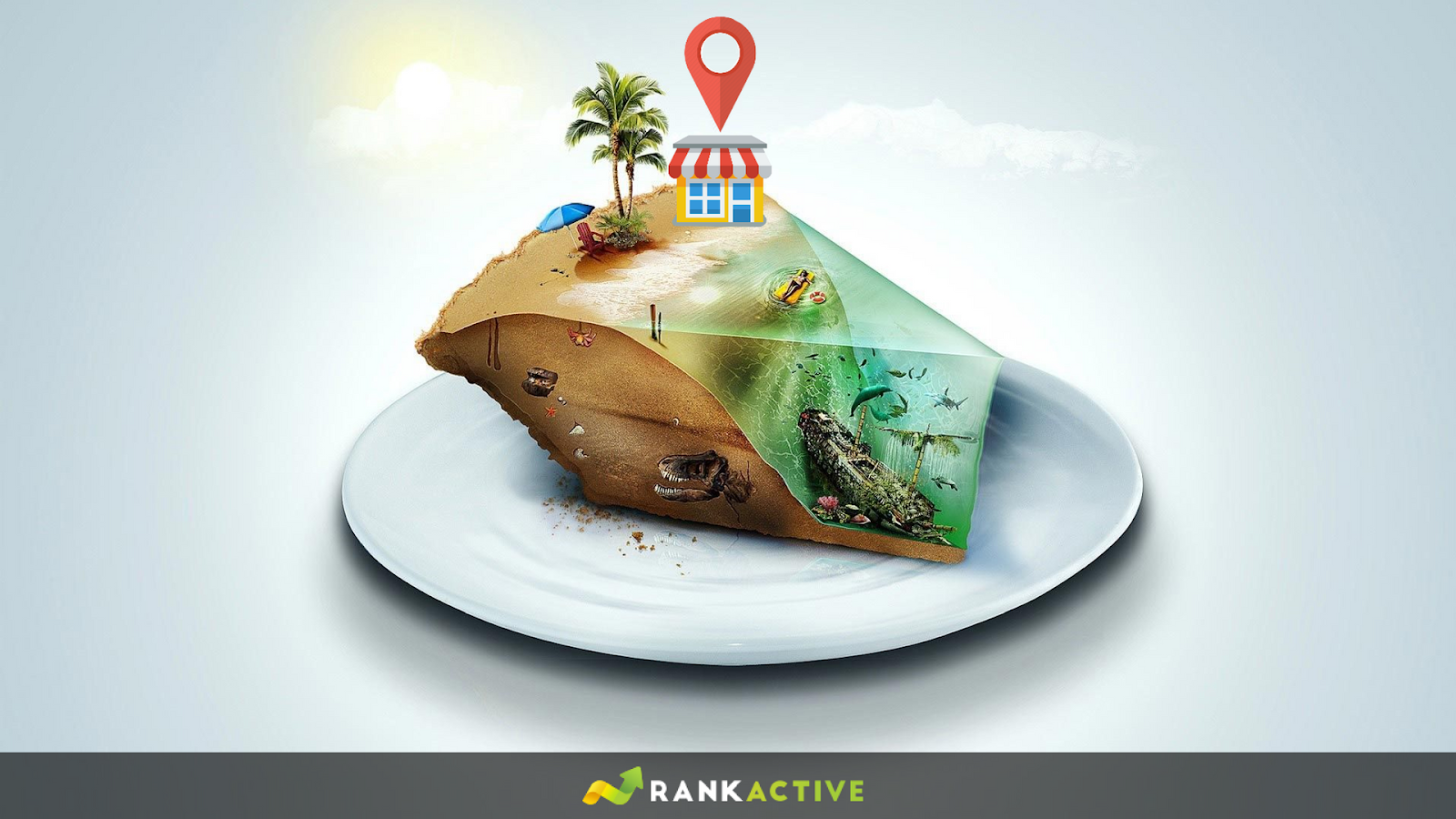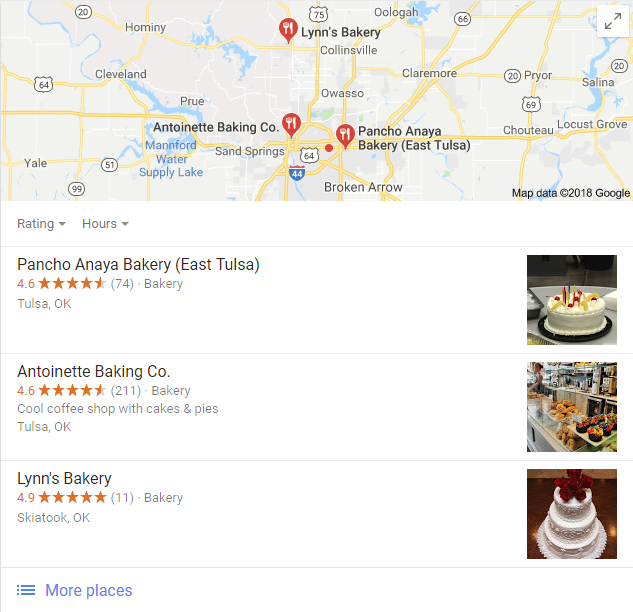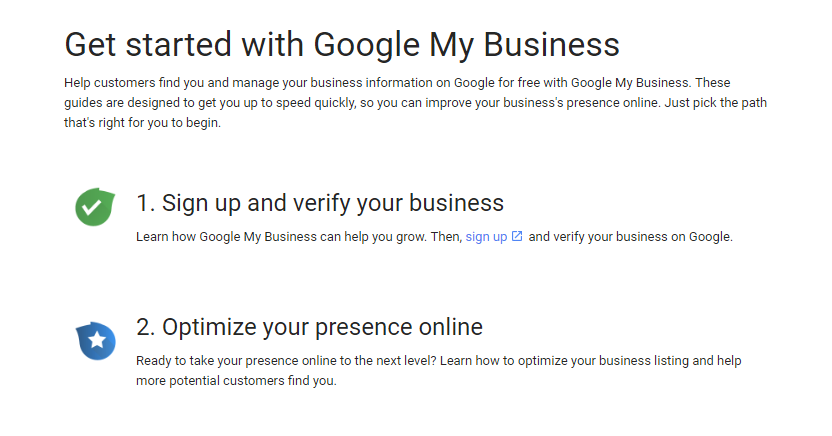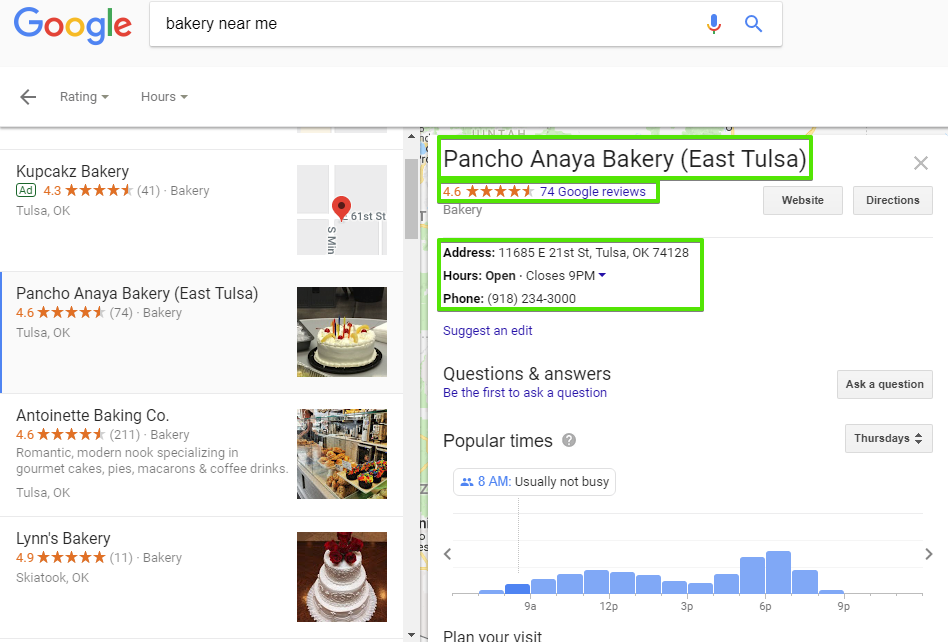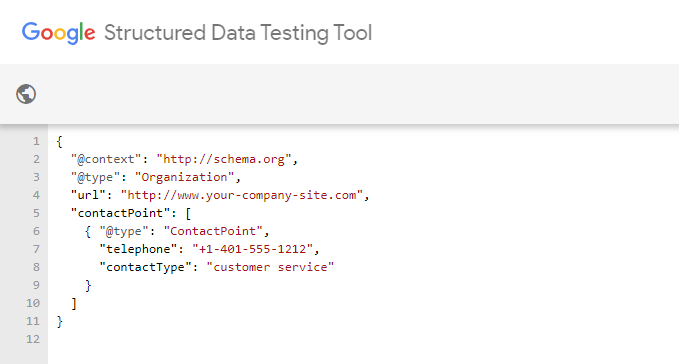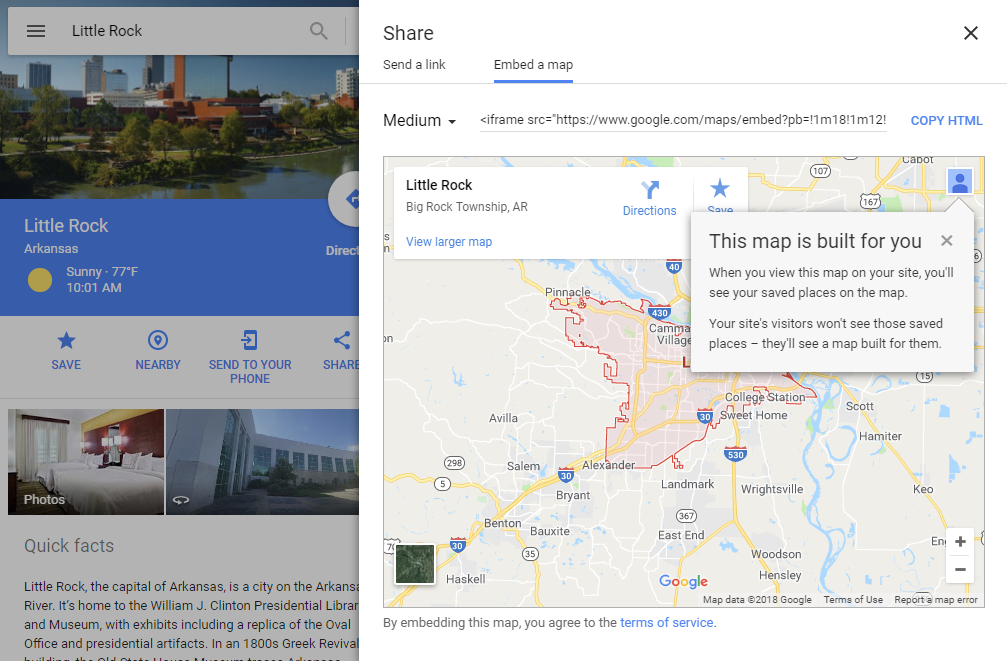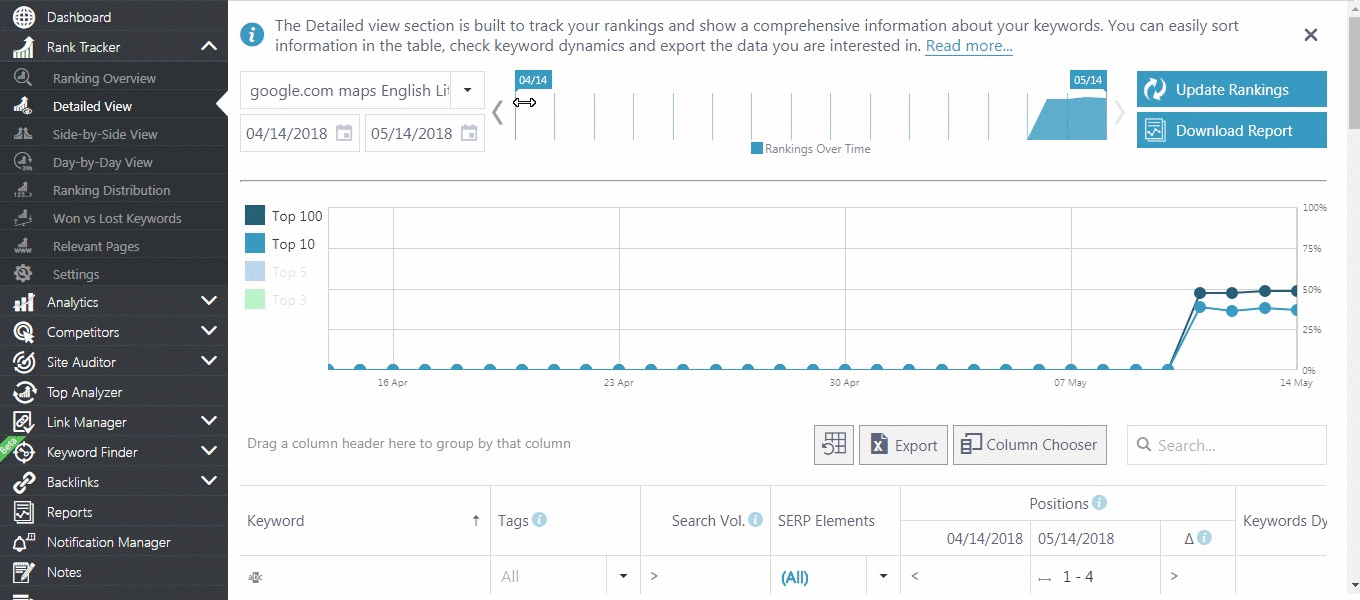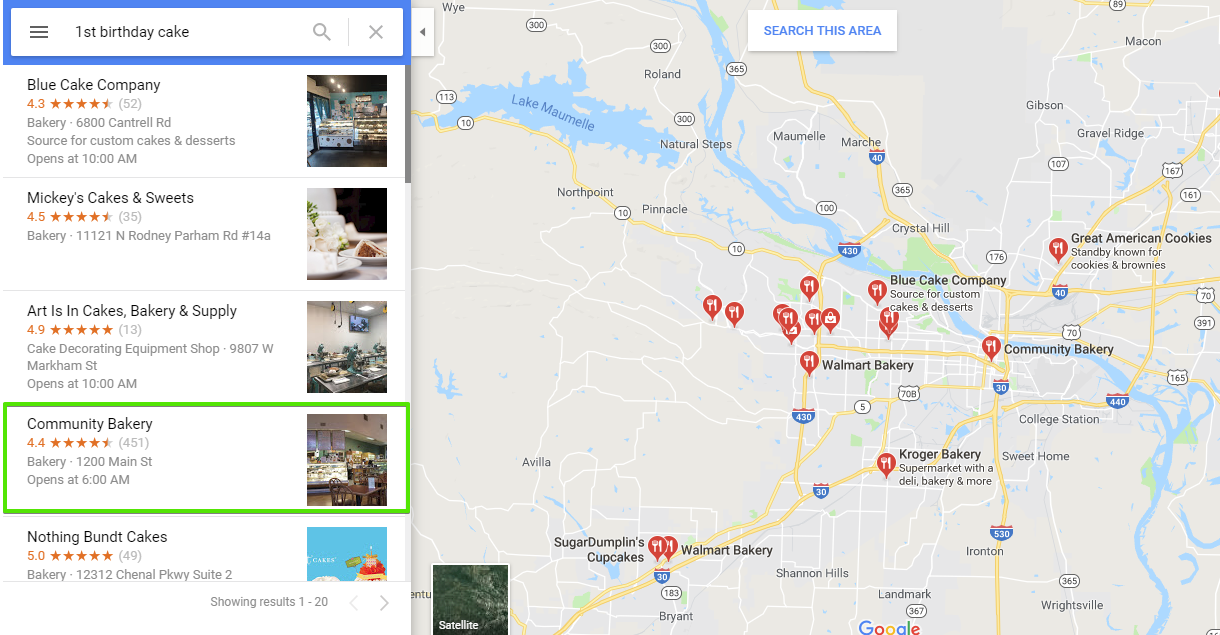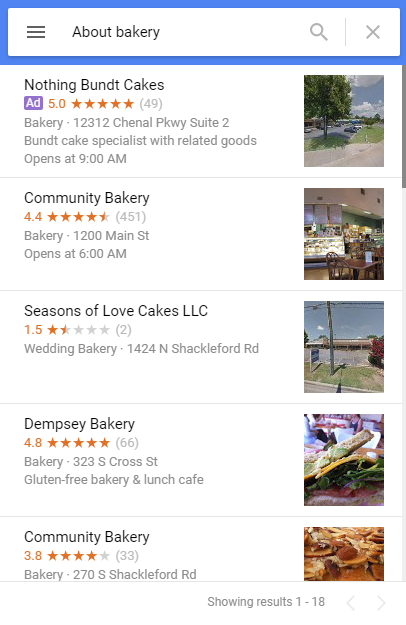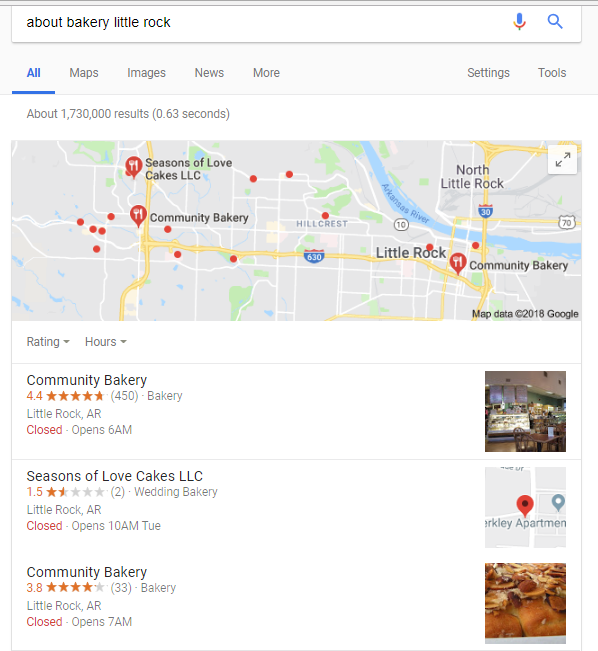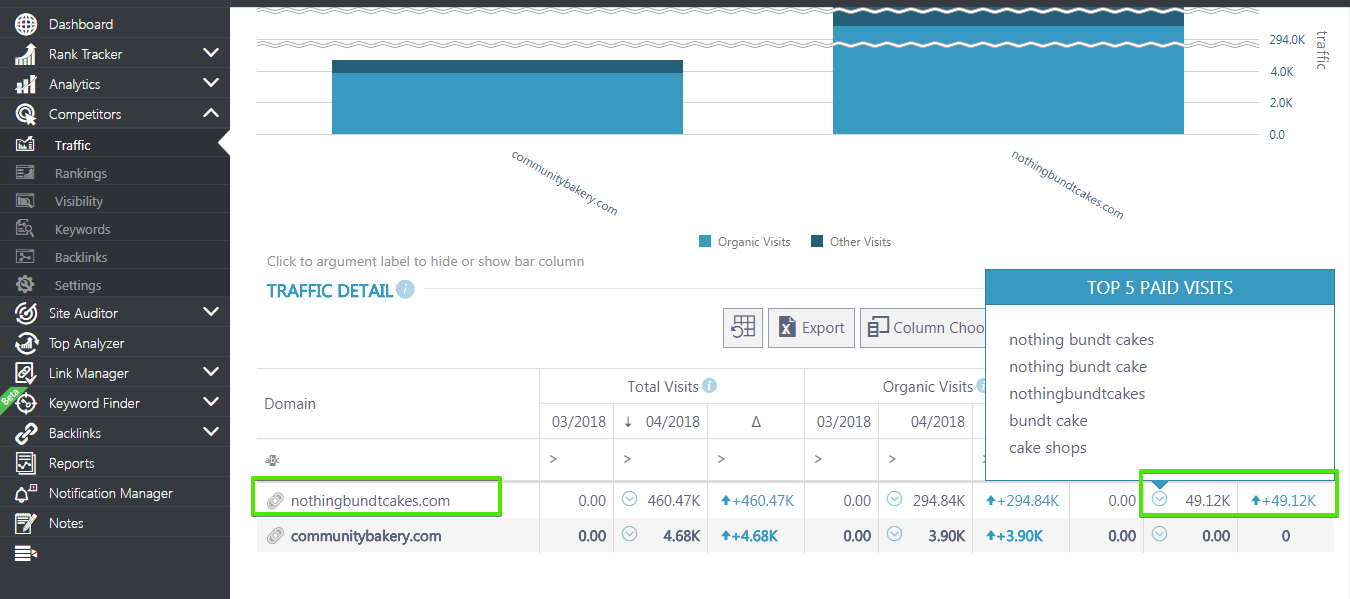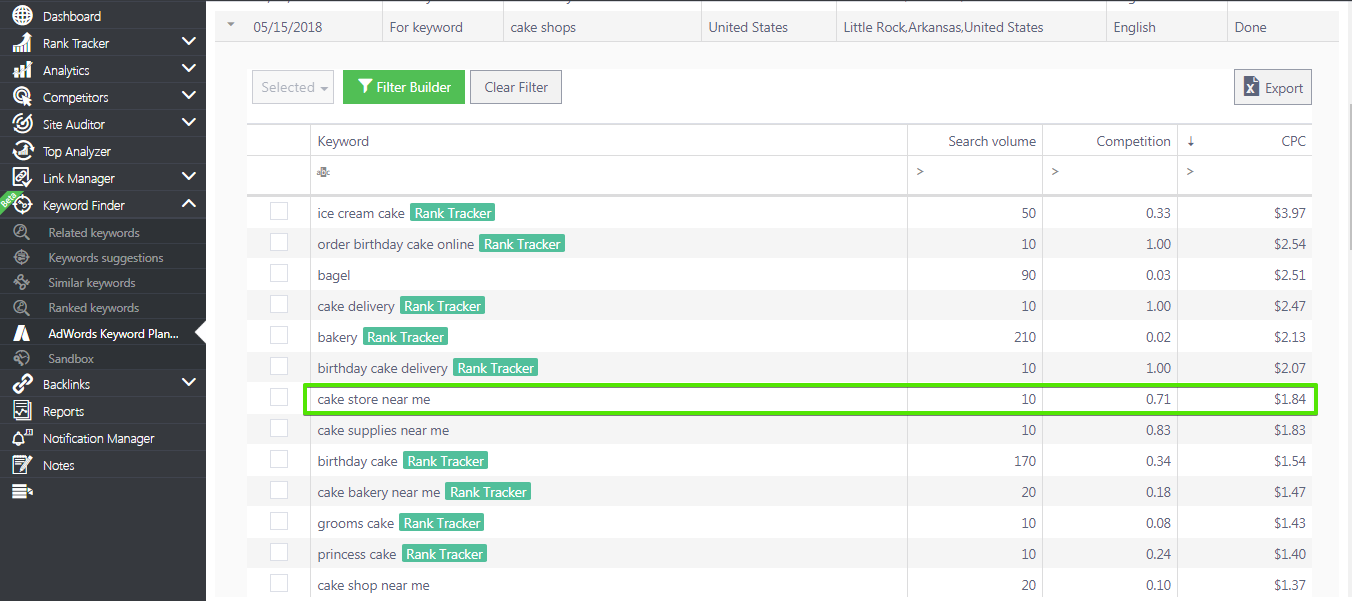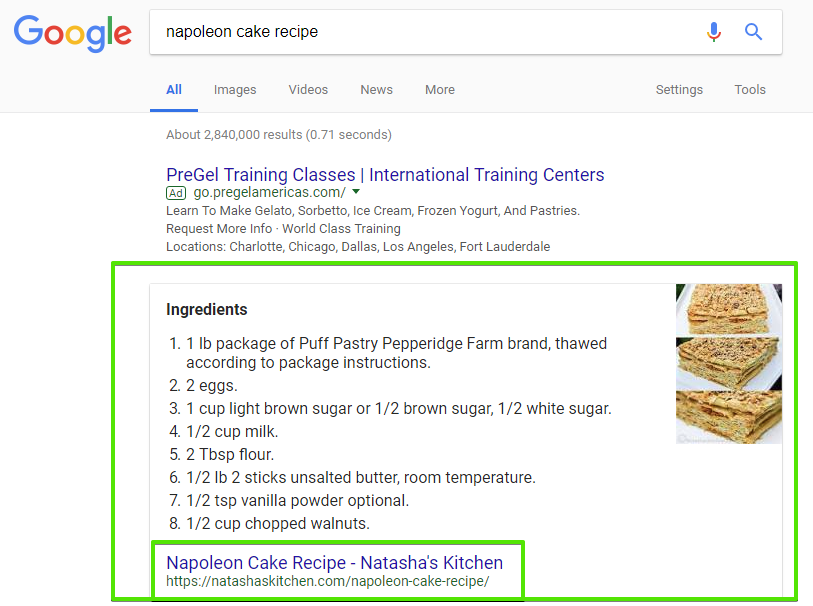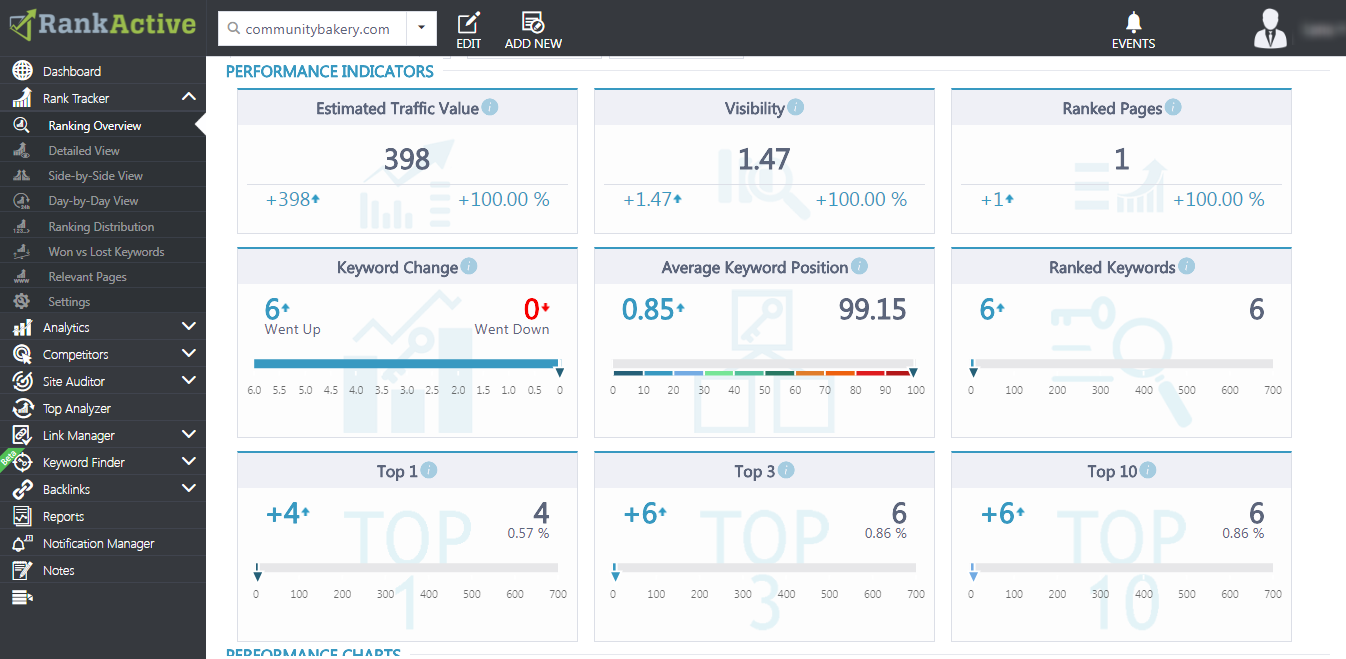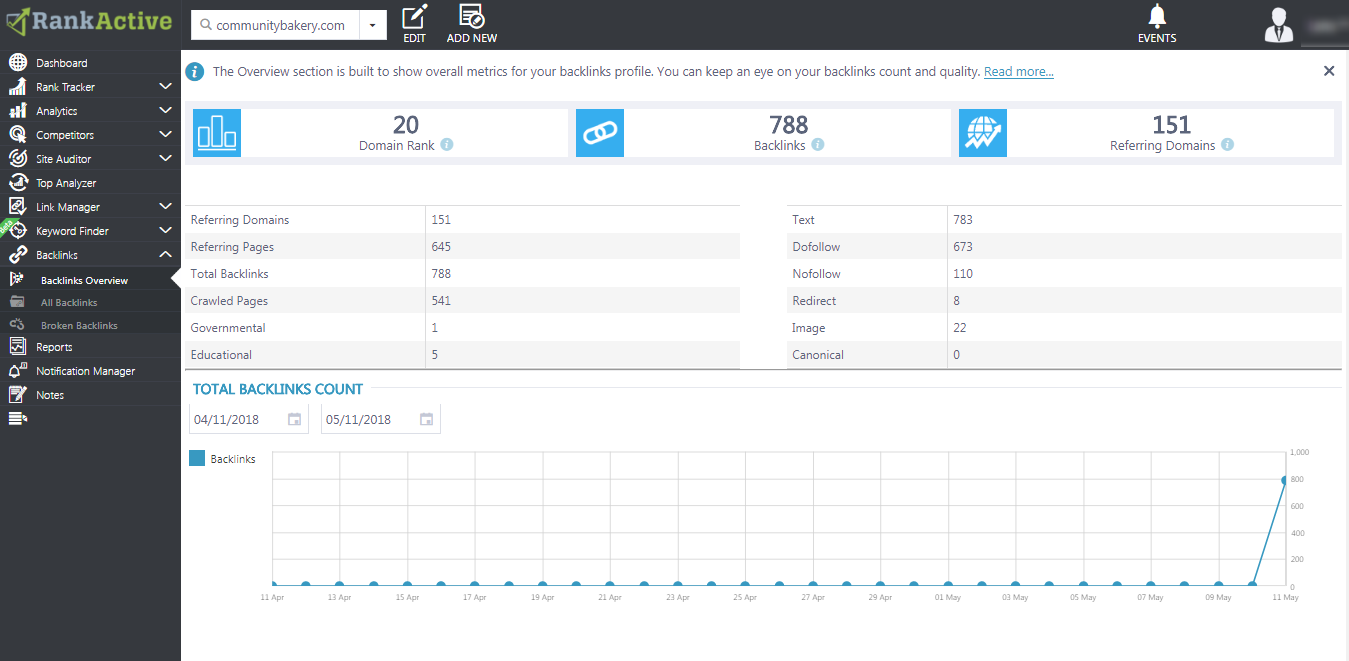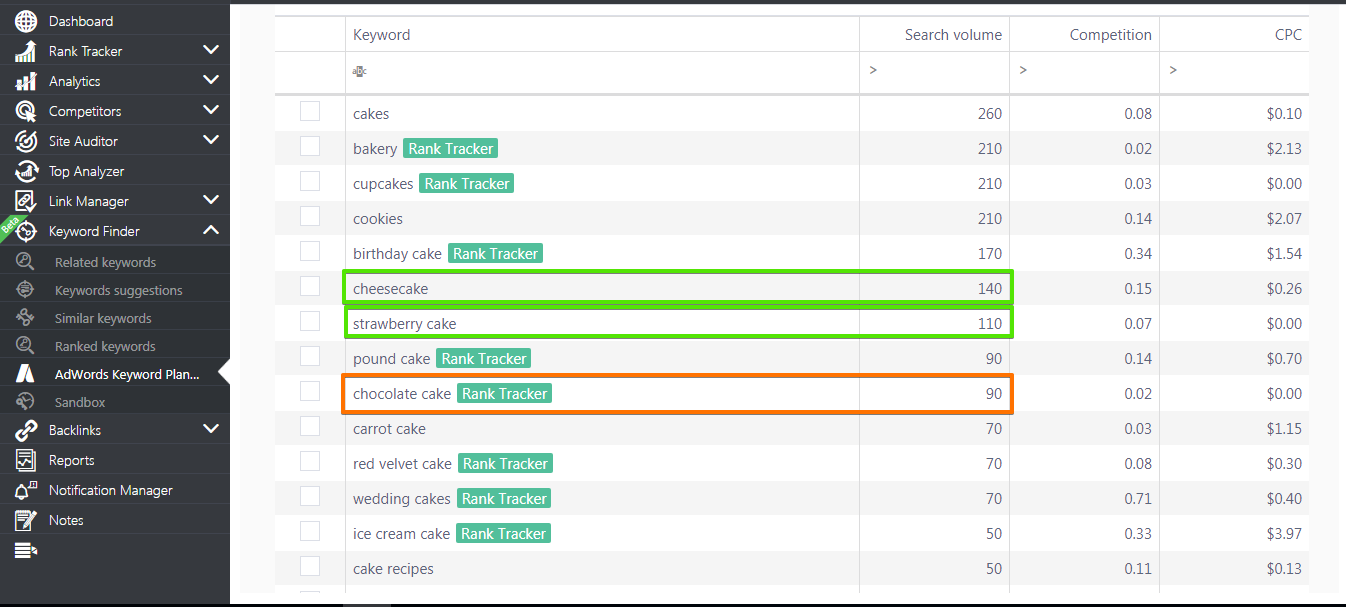The Ultimate Guide to Local SEO with RankActive
15 May 2018 Leave a comment LOCAL SEO
The ultimate reward of having a website for your local business comes from establishing a new customer acquisition channel which will help you have a bigger impact on your clients. By creating a better online presence you’ll be able to help your clients find your business and, by doing so, you’ll make a better opportunity to deliver any services to your clients and for them.
What are the Google Business Listings? How to get listed in Google My Business? What are Google Maps and Google Map Pack search engines? How to optimize your business for Google Maps? You might be asking yourself some of these questions which we, here at RankActive, will help you figure out.
What is Google Map Pack?
Google Map Pack is a list of top 3 results in SERPs that are shown as the most related results to a particular query. It contains information about a business in some location. More exactly, if you click on this result, it usually includes NAP (Name, Address, Phone number) of the business, working hours, reviews, website, etc.
How to get listed in Google My Business?
First, you need to go to Google My Business and click sign up. You’ll have to claim your business and verify it. And there you have it! You’ve just had your business listed. Now, the journey of SEO begins.
How to optimize your business for Google Maps?
If you take a closer look at those businesses that are already listed, you may notice some important things that you should be taking care of.
Like we have mentioned earlier, a well-presented, described in detail business will have a much better chance to appear in business listings. What’s more important is that you need to enter the full information about your business and it must be valid. Also, from now on you should never confuse this information and must concentrate on putting it in the same form and order everywhere: on your website, on the contact us page, etc. However, you don’t necessarily need to have a website to get listed in Google My Business and appear on Google Maps.
Use Google’s Structured Data Testing Tool to test the validity of the information and make sure it’s mistakes free. It will help you enter the correct information about your business, which means that you’ll have good chances to get listed on Google Maps.
Apart from filling up all the NAP information, there is one more thing you can do. What some SEO experts suggest is that you can manually specify your location at google maps and embed the piece of code on your website.
What is the difference between Google Maps and Google Map Pack at RankActive?
Google has its search engine and also it has a “local search engine” for Google Maps. At the Map Pack SERP includes three results that are shown if available for specific parameters. As for the Google Maps, there are all results for local business based on specific parameters.
What it means is that when you create a new project on our platform, you can see your rankings for Google Maps or Map Pack search engines. Also, you can see how close you’re getting to Google Map Pack of top 3 SERPs. In addition to that, you can choose a specific location of your business, which will help you monitor your local metrics.
Once you know where your positions are for all the local paraments, you can start doing SEO.
What these search engines help you do is that you can see your rankings for particular keywords in Google Maps and Google Map Pack.
So, now let’s open an actual map and see if the information is correct and our position for this keyword “1st birthday cake” is really accurate.
Another difference between these two targeted search engines is that Google Maps sometimes has ads while Google Map Pack doesn’t. This is a good opportunity to get yourself to the top.
As you can see in the example below the direct competitor of Community Bakery is having quite a lot of visitors for running ads for these particular keywords.
So, what Community Bakery can do is start running ads as well and increase the bid a little after they checked “cake store near me” keyword, for example, and figured the CPC rate with the Keyword Finder -> Adwords Keyword Planner.
Take care of long-tail keywords
Local SEO has its own peculiarities, such as, for example, people tend to use mobile phones, instead of desktops, to look for what they need. Imagine yourself walking down the street and searching for a birthday cake for your friend whose name is David. He is a biker, his favourite music is heavy metal and he absolutely loves the feeling of speed, wind in his face, freedom of having full control over the process of riding a bike.
You’re probably having all these thematic keywords in your head and what you do is this. You take your mobile device, turn on the voice assistant and roll out such phrases: “What is the best cake for a biker?”, “Which cake is the best for a man who likes heavy metal?”, etc. You’d probably be interested in reading something about the cake, but even more than that you’d be fascinated to see great photos of some brutal cakes for bikers.
This is the number one rule of successful local SEO, you need to pay very close attention to long-tail keywords and know exactly how to optimize for voice search. The best long-tail keywords contain Four Ws: What, Where, Why, When. For example, “Where can I buy birthday cake near me?”, “When does the nearest bakery close?”, etc.
The best way to track these keywords is to add them to your Rank Tracker and see the positions of these keywords and the dynamics of changes. This is important because if for some reason you see that the keyword doesn’t work or dropped, you will have to react immediately and apply new changes.
Start your blog
If you’re running a local business, then you must start writing a blog where you’ll place a high-quality and resolution photo of a cake, a catchy thematic title and most importantly a recipe of how to cook that cake and what ingredients you need.
Why is it important?
Because you want to get your featured snippet with the name of your company.
A featured snippet is selected automatically, and you can’t specify what it is going to be as it is selected programmatically, according to Google. However, you can point it out helping the crawler do the job by getting reviews to this page and optimizing a particular page. In case you need to see a detailed info about a single page, then Site Auditor will help you monitor either the whole website or a single URL spotting out on-page issues which you can fix.
The way you can specify what should be taken as a snippet is to add the information in a structured data markup. This is a piece of code where you separately enter all the information about a recipe, for example, just like as Google points it out. It will help users see exactly your recipe if they would search, let’s say, for a Napoleon cake by ingredients, calories, etc.
We have estimated many bakery and pizza stores with websites and we found out that 10% only have a blog, and 50% of these is a mess. This a good way to perform competitors analysis and beat them on.
Build a link profile and collect reviews
According to BrightLocal, 85% of consumers trust online reviews as much as personal recommendations. This is an incredibly high number. When you offer takeaways or maybe your customers visit you locally, don’t hesitate to ask them for reviews. The reviews can be divided into 3 categories: positive, neutral, negative. It is absolutely alright to gather all of them. As an online-business SEO software platform, we know that all reviews matter. The negative reviews help your company grow because they point out the mistakes which you can work on.
Speaking about positive reviews, you collect them for your future or already existing customers. As BrightLocal research suggests, positive reviews make 73% of consumers trust a local business more.
If you’re running a website not only you need to collect clients reviews, you should also increase your domain authority and page authority. The easiest way to do that is to attract backlinks to your website by simply buying them or reaching out to other authoritative resources or content writers to put your link on their website.
When you collect a lot of links, you’ll have to monitor them and manage properly in order to level all the issues that may appear, such as links pointing to non-existing pages or broken links, in this case. For these purposes, there is no better tool than Backlinks Explorer which you can try out right now and schedule a live demo.
A local business is much more different from non-local one, so establishing your real presence matters as much as digital one. You can look for meetings at MeetUp.com to find a sponsorship or simply get noticed and cooperated with. Apart from your SEO, this is a good opportunity to settle your local presence.
As we have already mentioned the importance of NAP (Name, Address, Phone) and other information about your business and that you must be consistent with it, we now want to emphasize the importance of citations for local business. Google counts everything, and citations are not an exception. A citation is any mentioning of your business anywhere on the web. And here is the importance of the consistency of your NAP is that it will contribute to your better relevancy and trustworthiness from Google’s perspective.
How to make better business decisions with RankActive? (Bonus tip)
It’s all about demand and giving people what they want. So, how do you keep in touch with the most wanted clients requests and queries? Use our Keyword Finder to see what keywords have which search volume and how you can benefit from it.
For example, have a look at what keywords we already have and are ranking for and what we can yet take into account.
Green color highlights our possible business opportunities comparing to orange. We can see that strawberry cakes and cheesecakes have higher search volume in our highly competitive city Little Rock. Why are we ranking for chocolate cakes then? It’s still good, but we can concentrate on producing strawberry cakes and cheesecakes as well because that’s what people are looking for.
Conclusions
If you want your business to live long and prosper, you should create a website and apply the already mentioned things. A website makes it easier for clients to educate themselves about your product and also engage themselves with your brand. It will have a big impact on your local presence as well as online one. Don’t miss out the opportunities that will make your business grow!
This is how you kill in the local SEO with RankActive! If you’d like to have all the info structured and simplified, smash the “Download Infographic!” button below!
Tags: Google Maps, Google My Business, local business
Like this article? There’s more where that came from.
- 4 Steps Guide to Using Google Analytics for Social Media
- Setting up of the trigger to be notified when your ETV reaches the goal
- How to Get Out of Google Sandbox and Do It Quickly?
- Geolocation Redirect 101: How to Secure Your SEO Localization Efforts?
- Your Ultimate Guide to SEO Reporting with RankActive
- Your 7-Step Guide to Increasing Page Speed

